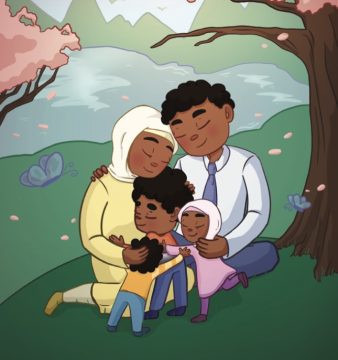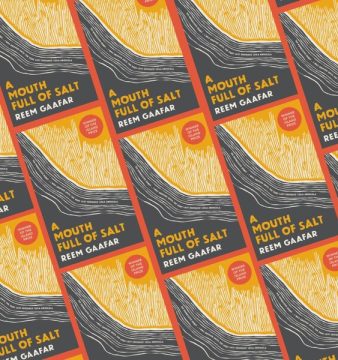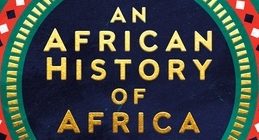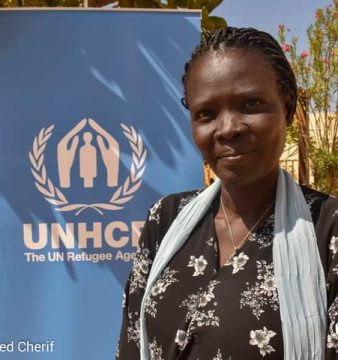Ghost Season: A Debut Novel By Fatin Abbas
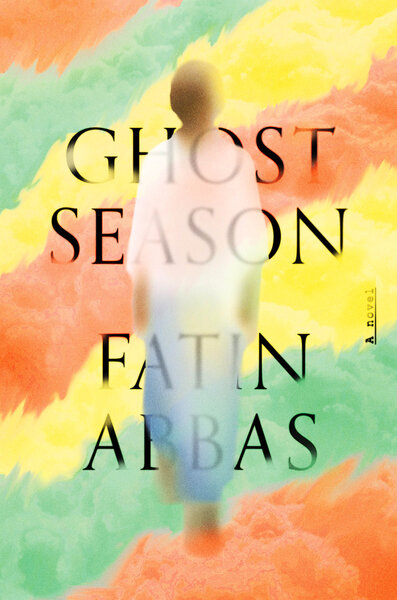
A mysterious burnt corpse appears one morning in Saraaya, a remote border town between northern and southern Sudan. For five strangers on an NGO compound, the discovery foreshadows trouble to come.
Weaving a sweeping history of the breakup of Sudan into the lives of five characters caught in the crosshairs of conflict on the Sudanese border, Sudanese-American author Fatin Abbas’s debut novel, Ghost Season, explores the porous and perilous nature of borders—whether they be national, ethnic, or religious—and the profound consequences for those who cross them.
Ghost Season was released on 10 January 2023 in the US and Canada, and is set to be released in the UK in July 2023 and in Germany in 2024.
Fatin is a writer and scholar whose work lies at the intersection of African and Middle Eastern studies, literature, migration, gender and visual studies. Her short fiction has appeared in Granta, Freeman’s, The Warwick Review, and Friction, and her journalism and review essays have appeared in Le Monde diplomatique, The Nation, Zeit Online, Africa is a Country, Bidoun, African Arguments and openDemocracy. She has been a Miles Morland Foundation Writing Scholar (UK), a Fellow at the Akademie Schloss Solitude and Schloss Wiepersdorf (Germany), a Writer-in-Residence at the Jan Michalski Foundation (Switzerland), a Maison Baldwin St. Paul de Vence Writer-in-Residence (France), an Austrian Federal Chancellery/KulturKontakt Artist-in-Residence (Austria), as well as a Mophradat writing grant awardee (Belgium).
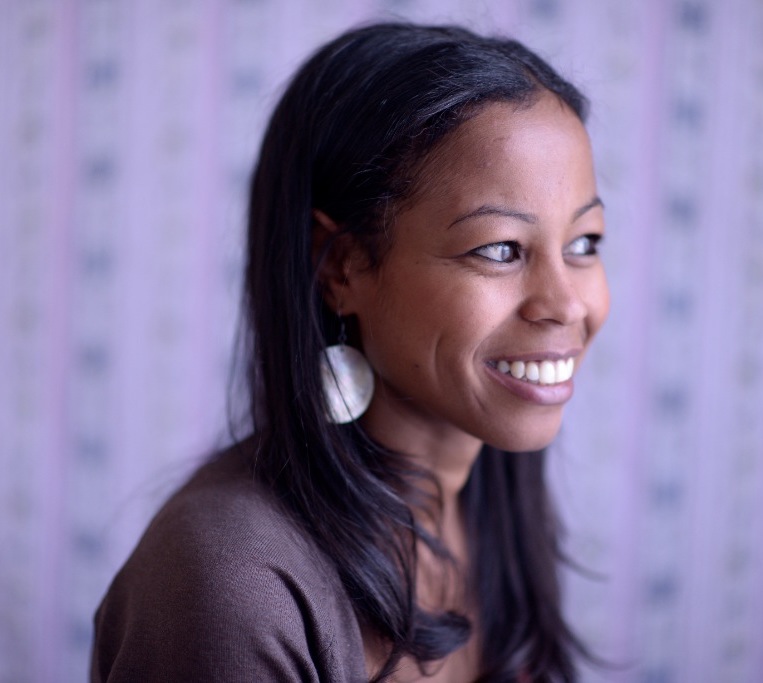
Born in Khartoum, Sudan and raised in New York, Fatin gained a Bachelor of Arts (BA) in English from the University of Cambridge, her PhD in Comparative Literature from Harvard University, and a Master of Fine Arts (MFA) in Creative Writing from Hunter College, the City University of New York, where she was awarded both the Bernard Cohen Short Story Prize and the Miriam Weinberg Richter Award for her writing. She teaches fiction writing in the department of Comparative Media Studies/Writing at Massachusetts Institute of Technology (MIT).
500 Words Magazine interviews author Fatin Abbas about her debut novel, Ghost Season, and her versatile and thriving writing career.
What inspired you to write Ghost Season?
I wanted to make sense of place, a country, a history that has deeply shaped my own identity. Though I left Sudan when I was very young, right at the beginning of former Sudanese President Omar Al Bashir’s dictatorship, I always felt a deep sense of rootedness and connection to the country. So Ghost Season is an attempt to make sense of my place of origins, as a diasporic Sudanese who has always looked back to Sudan and has always felt connected to what is now two countries—Sudan and South Sudan.
How long have you been working on Ghost Season?
For many years. The very earliest piece of the novel was published in 2015.
What are some of your favourite parts and characters in the novel?
I like to think that the book does a good job of evoking a sense of the place—the fictional town of Saraaya—in such a way that it feels convincing and real. I think the book does a good job of evoking the difficulties the townspeople face in terms of climate change, and how that affects peoples’ livelihoods. I also set out to write a book about a non-biological family, about a collection of strangers from different ethnicities, backgrounds, cultures, who manage to form a community of sorts, in spite of the very rigid political, cultural, religious lines that separate one group from the other. I enjoyed putting those five characters—the five protagonists of the novel—together.
What was the most challenging part when writing and publishing the novel? And what was your favourite part of writing and publishing this novel?
The most challenging part, which I think is challenging for many writers, is finding and protecting the time to write amidst life’s demands—work and family and other obligations. How to protect your writing time and space as sacred, because without that time, no book gets done. A second challenge is that if you’re writing ‘a book,’ or making art of any kind, that’s not taken very seriously by large swathes of society. You’re considered to be indulging in a hobby, or playing. But writers and artists are as essential as engineers, or doctors, or scientists. We’re not given the same value, even though it is writers and artists who are at the vanguard of imagining different possibilities, futures, identities for society. So to continue to have faith in your mission as a writer or an artist, and the importance of that, in spite of a society that is structured to devalue literature and art in general, except, perhaps, as lucrative commodities.
My favourite of part of writing and publishing the book has been the immense sense of meaning I get from doing what I love, what I find meaningful. Writing is hard, but it is the most meaningful and profound work I can think to do. And I am very, very lucky to have the privilege to do it. Also, there is something really wonderful about finally having your work mirrored back to you when readers pick it up. It’s been moving for me to hear from readers, and get a sense of how the book resonated with them.
As a mostly short story writer, how did publishing your first novel change your process of writing?
A novel, unlike a short story, is a very long marathon. Its tens of thousands of words that you meticulously string together over the course of many years to shape scenes, story arcs, characters. My process of writing changed in that I learned to build up that stamina to get from the beginning to the end of a long story. Also, there are so many pieces that you have to balance, and learning to put all those pieces together was a new experience.
Today’s world has become quite digital, how did you factor that in when writing/publishing Ghost Season? Where can people buy your novel online?
I wasn’t really thinking about digital or not when I was writing, I was just writing. The digital medium, though, becomes very important when thinking about publishing. What’s good about digital is that it has the potential to make books accessible to people everywhere simultaneously. So, digital can democratise access to books, or at least, it has the potential to allow for more accessibility to books. That said, there are still a lot of obstacles. To have access to e-books you need access to digital devices, which many people, in countries like Sudan, don’t have or can’t afford. So, I think the potential of digital distribution of books is far from being realised. So, while Ghost Season is available to buy as an e-book on bookseller sites like Apple, Amazon, etc, it doesn’t mean that it is easily accessible to all still.
What are other projects you’re currently working on?
I’m working on a collection of short stories and a novel.
What are your thoughts on Sudan’s current literary scene particularly English literary scene?
It’s really heartening to see that Sudanese writers—writing in different languages—are making their mark. Bushra Al-Fadil, who writes in Arabic, won the Caine Prize for African Writing in 2017. There’s Stella Gaitano, Zeinab Belail, Leila Aboulela, Safia Elhillo, to name just a few. There is a thriving literary scene in the two Sudans and in the diaspora, and writers are beginning to get attention, which is great. Located at the crossroads of Africa and the Middle East, Sudanese writers have a special place and position in being able to speak to so many different audiences and cultures simultaneously. And the 2019 revolution in Sudan has given a new life to the arts and to literature in general in that part of the region.
What advice would you give to aspiring writers interested in publishing a book or novel one day?
Dedication to your craft, patience, perseverance. There are no short cuts (unless you’re very lucky). But the main thing, I think, is just to master your craft by reading as much as possible and writing as much as possible. Try to find a community of writers, because writing is solitary. It can make all the difference to have support from fellow writers, or to hear a word of encouragement from others. Publishing is just the end of the writing story. The beginning and the middle—those years of working on your own—are what make you as a writer.
For more information on Fatin Abbas, visit www.fatinabbas.com or on social media: Twitter @fatinabbas and Instagram @fatinabbas. To purchase Ghost Season, the novel is available to order on Apple, Amazon, Barners & Noble, and more.

